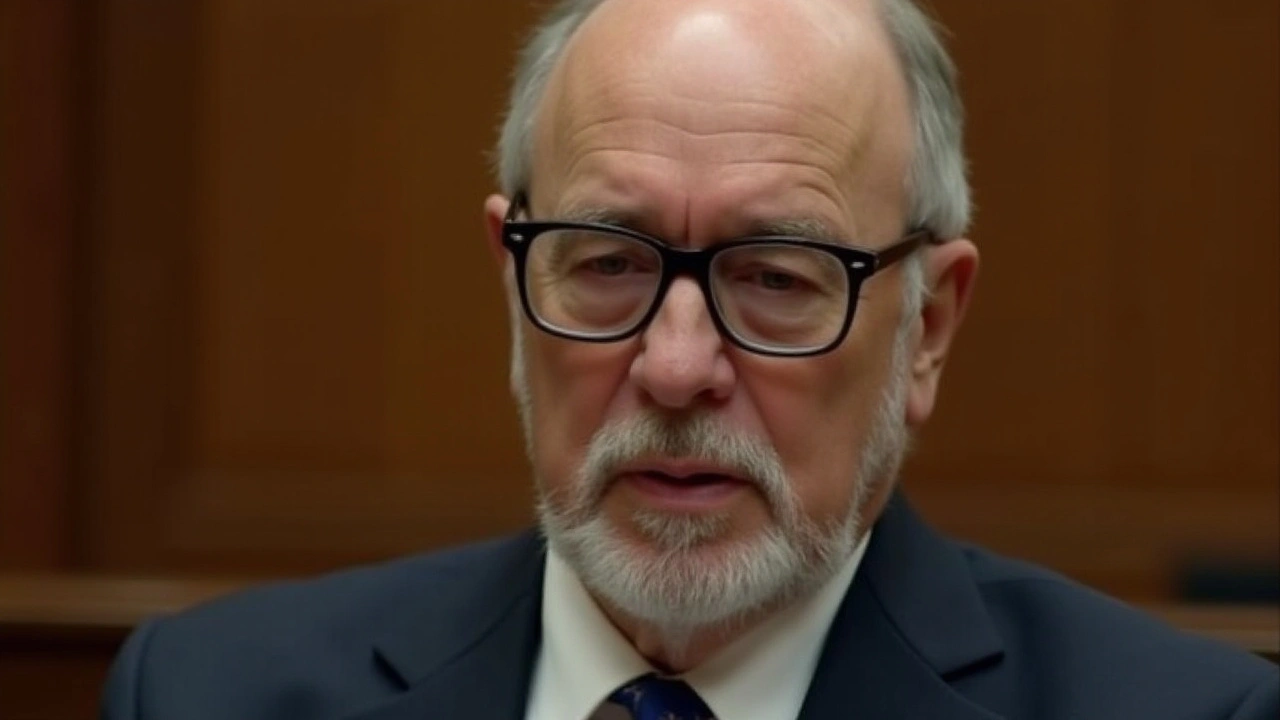Harvey Weinstein's Health Condition Unveiled
In recent developments, Harvey Weinstein, the much-discussed film producer, renowned and now infamous for both his Hollywood influence and subsequent incarceration, has been revealed to be dealing with a significant health issue. Weinstein, who is currently serving a lengthy sentence following his 2020 rape and sexual assault convictions, has been diagnosed with chronic myeloid leukaemia, a form of cancer impacting the bone marrow and white blood cells. Although chronic myeloid leukaemia is rare, it remains treatable, predominantly affecting those in Weinstein’s current age bracket of 72 years. The disclosures about Weinstein’s health have sparked varied reactions and much public speculation, prompting his representatives to consider such exposure as an infringement on privacy.
Current Medical Interventions
While in the confines of his prison at Rikers Island, Weinstein is reportedly receiving treatment for his condition. The noted oncological challenge comes alongside a history of serious health interventions for Weinstein, including a recent emergency transfer to Bellevue Hospital in Manhattan. There, he underwent pericardiocentesis, a medical procedure to relieve the excessive fluid around his heart and lungs—an episode that underscored the urgency of his medical needs. Even though Weinstein's legal health representative Craig Rothfeld has refrained from sharing details on the current diagnosis, it is apparent that Weinstein's health is precariously balancing between state-imposed constraints and necessary medical care.
Privacy Versus Public Curiosity
A focal point of the discourse surrounding Weinstein has been the tension between his need for privacy and the relentless attention from the public and media. Juda Engelmayer, a spokesperson for Weinstein, has condemned what he describes as the unhealthy excitement over the former producer’s health challenges. Engelmayer labeled the clamor surrounding his medical status and the inclination to make such matters a topic for discussion as perturbing and disrespectful. This appeal for privacy resonates with the broader context of media ethics and the dignity owed to individuals, no matter the legal controversies they are embroiled in.
Legal Battles Continue Unabated
Coinciding with these health tribulations, Weinstein is poised to confront substantial legal roadblocks. Having been convicted in February 2020 on two significant sexual offenses—first-degree and third-degree rape—Weinstein was sentenced to 23 years in prison. However, the New York judicial system threw a twist in April when the Appeals Court surprisingly overturned his conviction. Said court argued that Weinstein’s initial trial was marred by improper judicial conduct. Consequently, Weinstein awaits a retrial slated for the 12th of November. This legal reversal has complicated the landscape of accountability, giving rise to renewed scrutiny and potential testimony from survivors and legal advocates.
The Continuing Allegations
Amid the developments of his pending retrial, Weinstein faces fresh opposition as another accuser has emerged, reviving claims of his alleged misconduct. The latest charges allege that Weinstein coerced oral sex from a woman in a New York hotel during 2006, a charge consistent with previous allegations. Despite the weight of evidence of past allegations, Weinstein has persistently denied all accusations of sexual misconduct, a stance that undoubtedly lends another challenging layer to his ongoing legal battles.
The Impact of Health on Legal Proceedings
As Harvey Weinstein navigates through his intertwining legal and health challenges, one of the critical questions centers around how his chronic condition might affect upcoming legal procedures. Judges may be called to contend with motions that argue for compassionate considerations due to his deteriorating health. While some argue that his condition should not obscure the gravity of his alleged crimes, the intersection of Weinstein’s health, legal accountability, and societal expectations may yet influence the tenor and resolution of his impending retrial.
The narrative of Harvey Weinstein—once a towering figure in the entertainment industry and now a fallen titan—encapsulates complexities seen at the confluence of public interest, personal health, and judicial processes. While his treatment for chronic myeloid leukaemia continues, the public remains engrossed, casting an unwavering eye on the outcome of his unresolved legal chapters.

5 Comments
Sreeanta Chakraborty
October 23 2024
This is classic performative victimhood. The system gives him cancer so the public forgets what he did. He built an empire on silencing women and now he wants sympathy because his body is failing? The universe doesn't give second chances, it just gives consequences.
They're letting him live in a prison hospital while his victims still carry trauma. This isn't mercy, it's cosmic irony dressed as medical care.
Vijendra Tripathi
October 24 2024
man i just saw this and thought wow. i mean he was a monster but seeing someone that powerful go down like this? it's wild. he used to own red carpets and now he's getting chemo in a prison ward. life's weird like that. no one deserves to suffer like this but also... you know? i don't feel bad. just... weirdly fascinated.
ankit singh
October 24 2024
CML is treatable with TKIs like imatinib and has good long term survival if managed properly. Prison healthcare in NY is garbage so he's lucky if he's even getting the meds. The real story is how many inmates die from treatable cancers because they can't access care. This isn't about Weinstein it's about the system failing everyone
Pratiksha Das
October 25 2024
i bet he's still texting his lawyers from his hospital bed like he's still in the boardroom lol and also i heard the new accuser is his ex assistant who was 19 when he pressured her and now she's a mom of 3 and still has panic attacks every time she hears a door close
ajay vishwakarma
October 26 2024
This is a reminder that justice isn't always loud. Sometimes it's quiet. Sometimes it's a slow decline in a prison ward. He thought he was untouchable. He thought money and power could erase every lie. But time doesn't care about your reputation. It just keeps ticking. And now he's just another old man waiting for the next test result.